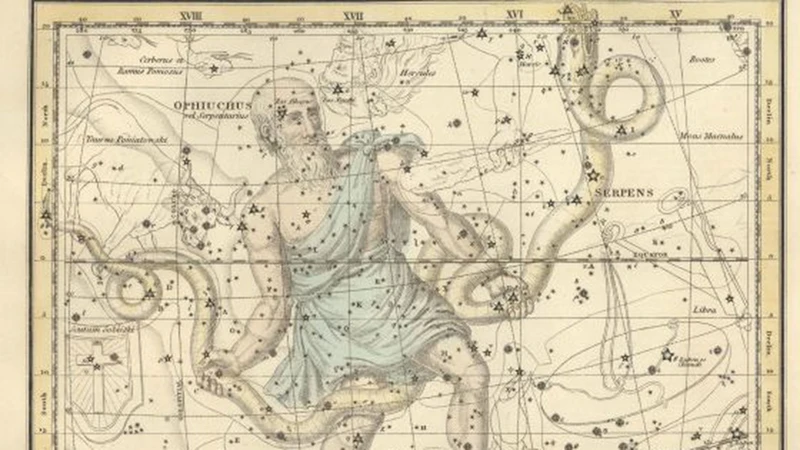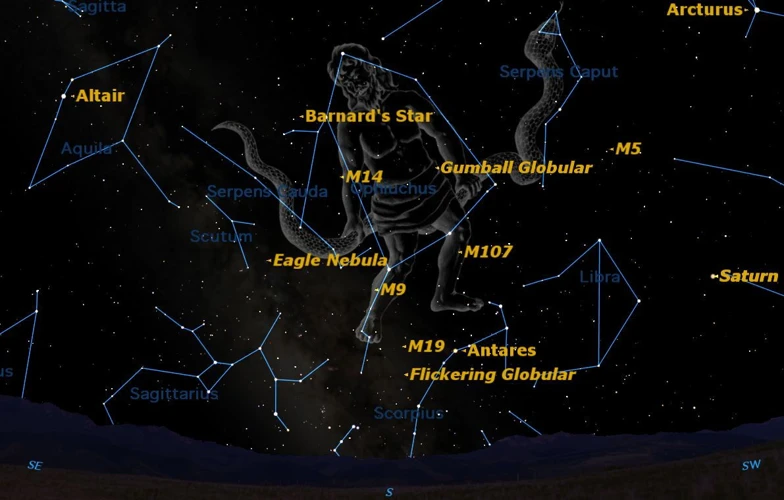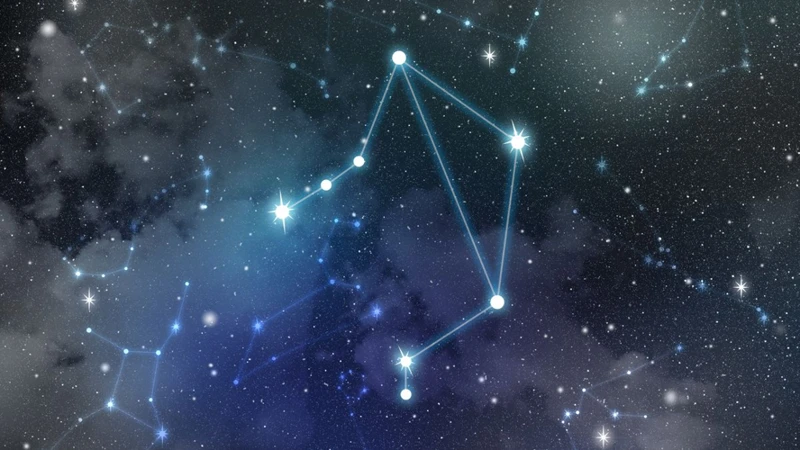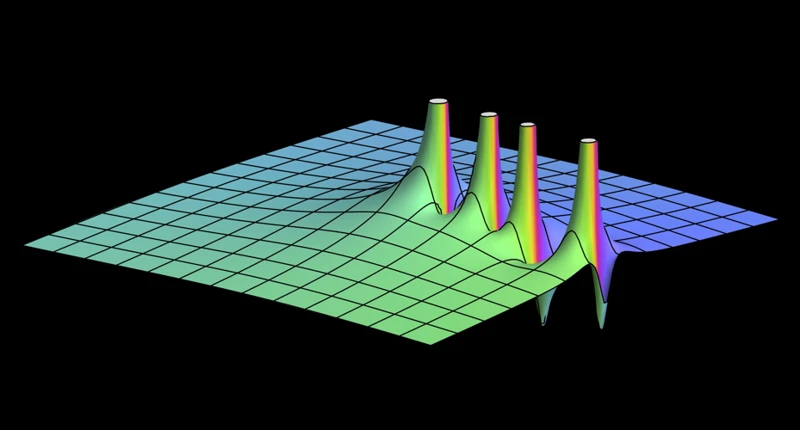Astrology has always fascinated humans with its ability to decipher the mysteries of the universe. Through the study of celestial bodies and their alignments, astrology claims to offer insights into human behavior and provide a deeper understanding of our place in the cosmos. But is there really a connection between planetary alignments and human behavior? This article delves into the subject, exploring the historical perspectives, current scientific research, and emerging theories surrounding the enigma of planetary alignments. We will unravel the secrets of Ophiuchus, analyze skeptical perspectives, validate the link through psychological studies, and even explore the potential quantum interactions and collective consciousness. Join us on this journey as we delve into the fascinating world of astrology and its potential application in our daily lives.
Contents
- The Role of Astrology in Human Lives
- Planetary Alignments and Their Effects
- The Ophiuchus Enigma
- Critical Analysis: Is There an Actual Connection?
- Emerging Theories and Hypotheses
- Application in Daily Life
- Conclusion
- Frequently Asked Questions
- References
-
Frequently Asked Questions
- FAQ 1: Can planetary alignments actually influence human behavior?
- FAQ 2: Do all planetary alignments have the same effect?
- FAQ 3: Is astrology considered a science?
- FAQ 4: What is the role of Ophiuchus in astrology?
- FAQ 5: How can Ophiuchus influence human behavior?
- FAQ 6: Are there any scientific studies that support the connection between planetary alignments and human behavior?
- FAQ 7: How can astrology be used for self-awareness?
- FAQ 8: Can astrology help improve interpersonal relationships?
- FAQ 9: Is there a scientific explanation for the connection between quantum interactions and planetary alignments?
- FAQ 10: How can one apply astrology in their daily life?
- References
- Read More
The Role of Astrology in Human Lives

Astrology plays a significant role in the lives of many individuals, shaping their beliefs, decisions, and even their identities. The study of celestial bodies and their influence on human behavior has been a subject of fascination and intrigue throughout history. Astrology serves as a guide, offering insights into personality traits, compatibility, and life events. It provides a framework for self-discovery and understanding, allowing individuals to gain a deeper insight into their own strengths and weaknesses. By analyzing the positions of planets at the time of birth, astrologers create birth charts, which serve as a roadmap for personal growth and development. These charts provide a comprehensive analysis of an individual’s personality, motivations, and potential life experiences. Astrology also offers valuable guidance in various aspects of life, including relationships, career choices, and decision-making. It helps individuals navigate through challenging times, providing reassurance and a sense of direction. Despite the skepticism surrounding astrology, its enduring popularity and the way it resonates with individuals across cultures and generations substantiates its role in human lives. As we delve deeper into this topic, we will explore the importance of planetary alignment in astrology and analyze various types of astrological aspects that contribute to its overall impact. We will also engage in the exploration of celestial events such as comets to deepen our understanding of the intricate workings of astrology. Astrology plays a significant role in shaping the lives of many individuals, providing guidance and insight into the mysteries of the universe and our own existence.
Planetary Alignments and Their Effects

Planetary alignments hold a remarkable power over human experiences and behavior. When celestial bodies align in specific patterns, they create a harmonious or challenging energetic influence that can significantly impact individuals and the world around them. These alignments are a cornerstone of astrology, as they provide valuable insights into our lives and help us understand the energetic forces at play. The positioning of planets, such as Mercury, Venus, and Mars, in relation to each other and the Earth, creates unique energetic configurations, known as aspects, that influence our emotions, thoughts, and actions. These aspects can bring about a wide range of effects, from heightened intuition and creativity to increased tension and conflict. Understanding the types of astrological aspects and their significance is key to comprehending the intricacies of planetary alignments and their effects. By exploring the importance of planetary alignment in astrology, we can gain a deeper understanding of our connection to the cosmos and how these alignments shape our lives. (Learn more about the different types of astrological aspects here).
The Basics of Planetary Alignments
Understanding the basics of planetary alignments is essential in comprehending their profound impact on human behavior and astrological interpretations. Planetary alignment refers to the positioning of celestial bodies in relation to one another from the perspective of an observer on Earth. These alignments occur when multiple planets, such as Mercury, Venus, Mars, Jupiter, Saturn, Uranus, Neptune, and Pluto, align in a specific configuration. The most common configurations include conjunctions, oppositions, squares, trines, and sextiles. Conjunctions occur when two or more planets align closely together in the same zodiac sign, amplifying their combined energy and influence. Oppositions happen when planets line up opposite each other in the zodiac, creating a sense of tension and duality. Squares occur when planets form a 90-degree angle, symbolizing challenges and conflicts that need to be addressed. Trines and sextiles represent harmonious aspects, signifying opportunities and ease in manifesting one’s desires. Each planetary alignment carries its unique energetic signature, which astrologers interpret to understand how it influences human behavior and events. The importance of planetary alignment in astrology cannot be understated, as it forms the basis for birth chart analysis and predictions. By examining the specific alignment of planets at the time of an individual’s birth, astrologers gain valuable insights into their personality traits, tendencies, and potential life experiences. These alignments serve as celestial signposts, guiding individuals on their paths of self-discovery and growth. As we delve further into the correlation between planetary alignment and astrology, we will explore how the exploration of comets provides additional layers of understanding and insight into the workings of these alignments. The basics of planetary alignments lay the foundation for the intricate and fascinating realm of astrology, offering a glimpse into the dynamic interplay between celestial bodies and human behavior.
Historical Perspectives on Planetary Influence
Historical perspectives on planetary influence can be traced back to ancient civilizations such as Mesopotamia, Egypt, and Greece. These early cultures observed the movements of celestial bodies and recognized their connection to human affairs. In Mesopotamia, astrologers known as Chaldeans practiced divination by interpreting the positions of planets and stars. They believed that these celestial events held significant meaning for individuals and society as a whole. In ancient Egypt, the alignment of the stars and planets was closely linked to the pharaoh’s rule and the well-being of the kingdom. The Greeks further developed the field of astrology, with notable figures like Claudius Ptolemy and Hippocrates exploring the connection between planetary alignments and human health. Ptolemy’s influential work, the “Tetrabiblos,” laid the foundation for Western astrology and emphasized the impact of planetary positions on human temperament and character. The historical perspectives on planetary influence demonstrate the enduring fascination and belief in the power of celestial bodies to shape human destiny. These ancient civilizations recognized the importance of planetary alignment in astrology as a means to understand and navigate the complexities of life. As we continue to explore the mysteries of the universe, including the exploration of comets, it is essential to acknowledge the roots of astrology and its historical significance. By understanding the historical perspectives on planetary influence, we gain a deeper appreciation for the cultural and intellectual foundations of this compelling field.
Exploring Current Scientific Research
– Current scientific research on the connection between planetary alignments and human behavior is a topic of ongoing exploration and debate. While astrology has its roots in ancient civilizations and cultural beliefs, scientific inquiry seeks to delve into this realm through empirical evidence and rigorous analysis.
– One area of exploration is the impact of planetary alignment on Earth’s magnetic field and its potential influence on human brain activity. Research suggests that changes in the geomagnetic field can affect neurotransmitters and the production of melatonin, which can in turn influence mood, cognition, and behavior. However, further studies are needed to establish a direct causal link between planetary alignment and these physiological changes.
– Another avenue of research focuses on statistical analysis and correlations between planetary alignments and specific human traits or events. Some studies suggest that certain planetary alignments may be associated with increased likelihood of certain behaviors or events, such as aggression or accidents. However, critics argue that these correlations may be coincidental or influenced by other environmental or psychological factors.
– Additionally, advancements in technology have allowed for more precise measurements and detailed observations of celestial bodies, enhancing our understanding of planetary movements and alignments. This scientific data provides a foundation for analysis and comparison with astrological theories.
– It is important to note that while scientific research continues to explore the connection between planetary alignments and human behavior, the field of astrology operates on a different framework, relying on interpretive techniques and subjective analysis. The perspectives of astrology and science may not always align, and reconciling the two remains a challenge. However, by engaging in open dialogue and further research, there may be opportunities to bridge these perspectives and gain a deeper understanding of the influence of planetary alignments on human lives. For further exploration, you can refer to the article on the importance of planetary alignment in astrology and the exploration of comets.
The Ophiuchus Enigma

The Ophiuchus enigma adds an intriguing layer to the already complex world of astrology. Ophiuchus, also known as the serpent-bearer, is a constellation that lies along the ecliptic. This constellation is often omitted in traditional astrology due to the widely recognized twelve zodiac signs. However, some argue that Ophiuchus should be considered the thirteenth zodiac sign. Delving deeper into the secrets of Ophiuchus reveals a rich history and mythology associated with this constellation. The influence of Ophiuchus on human behavior remains a topic of debate and exploration. While some believe that it possesses unique characteristics and influences, others argue that its influence is negligible. Unraveling the mysteries of Ophiuchus and its potential impact on human behavior adds another fascinating layer to the study of astrology. Whether Ophiuchus truly holds any significance or not, its enigmatic nature continues to capture the imagination of astrologers and enthusiasts alike.
Unearthing the Secrets of Ophiuchus
Unearthing the secrets of Ophiuchus has become a topic of intrigue and curiosity among astrologers and enthusiasts. Ophiuchus, also known as the “Serpent Bearer,” is a constellation situated along the ecliptic, the path the Sun follows throughout the year. Despite its ancient origins and significance, Ophiuchus is not officially recognized as one of the twelve zodiac signs traditionally used in Western astrology. However, its inclusion would require an adjustment to the zodiac calendar as it would fall between Scorpio and Sagittarius. The influence of Ophiuchus on human behavior is a subject of exploration and debate. Some astrologers argue that Ophiuchus embodies the traits of healing, transformation, and wisdom, making it a significant force in astrology. Others believe that the omission of Ophiuchus from the zodiac signs is intentional, as its inclusion would disrupt the established system. Unraveling the secrets of Ophiuchus requires a deeper understanding of the ancient wisdom and symbolism associated with this constellation. It presents an opportunity to broaden our understanding of astrological influences and delve into the complexities of human behavior. While its role in astrology may be a matter of conjecture, exploring Ophiuchus contributes to the continual evolution and expansion of astrological knowledge.
Influence of Ophiuchus on Human Behavior
Ophiuchus, also known as the serpent bearer, is a lesser-known constellation that has gained attention in recent years due to its potential influence on human behavior. Traditionally, the zodiac system consisted of twelve signs, each corresponding to a specific period of the year. However, the discovery of Ophiuchus has sparked debates about whether it should be included as the thirteenth sign in the zodiac. According to astrologers who advocate for its inclusion, Ophiuchus represents traits such as wisdom, healing, and transformation. It is associated with individuals who possess a strong desire for knowledge and have the ability to facilitate change in themselves and others. Those born under the influence of Ophiuchus are believed to be natural healers and possess intuitive abilities. They are thought to have a deep connection with spirituality and a strong sense of justice. However, skeptics argue that the inclusion of Ophiuchus in the zodiac system is merely a modern invention and lacks substantial evidence. While astrology enthusiasts may find the concept of Ophiuchus intriguing, its influence on human behavior remains a subject of speculation and further research. The debate surrounding Ophiuchus adds an intriguing layer to the already complex field of astrology, leaving us to ponder the extent of its impact on our lives.
Critical Analysis: Is There an Actual Connection?

When it comes to the connection between planetary alignments and human behavior, there is a need for critical analysis and examination. Skeptics question the validity of astrology, arguing that there is no scientific evidence to support its claims. They assert that any perceived link between planetary alignments and human behavior can be attributed to coincidence or confirmation bias. However, proponents of astrology point to psychological studies that indicate a correlation between planetary positions and certain personality traits. These studies suggest that individuals born under specific planetary alignments may exhibit similar characteristics. While this correlation doesn’t prove causation, it opens up the possibility of a connection between planetary alignments and human behavior. To further explore this topic, it is important to critically examine the available evidence, consider alternative explanations, and remain open to emerging theories that may shed light on this intriguing phenomenon.
Skeptical Perspectives on Astrology
Skeptical perspectives on astrology have long been present, questioning the validity and scientific basis of its claims. Critics argue that astrology is nothing more than pseudoscience or mere superstition. They argue that there is no empirical evidence to support the supposed connections between planetary alignments and human behavior. Skeptics often point to the lack of consistency and accuracy in astrological predictions, highlighting how they can be vague and open to interpretation. They argue that the Barnum effect, where people tend to believe generic personality descriptions that can seemingly apply to anyone, is at play in astrology. Additionally, critics argue that astrology fails to consider important factors such as genetics, upbringing, and personal choices when attributing traits and experiences to planetary alignments. They contend that astrology relies heavily on confirmation bias, where individuals tend to focus on information that supports their preexisting beliefs while dismissing contradictory evidence. While skeptics acknowledge the role of astrology in cultural and historical contexts, they argue that its claims lack scientific credibility and should not be taken as exact or reliable. It is important to consider these skeptical perspectives when examining the role of astrology in human lives, as they provide a critical lens through which to evaluate its claims. By critically analyzing and questioning astrology, we can better understand its limitations and make informed decisions about its role in our personal lives.
Validating the Link through Psychological Studies
Validating the link between planetary alignments and human behavior has been a subject of scientific inquiry, including psychological studies. These studies aim to explore whether there is indeed a correlation between celestial events and our thoughts, emotions, and behaviors.
One approach used in these studies is to examine large datasets of individuals and analyze any patterns or trends that may emerge in relation to planetary alignments. Researchers have looked for associations between planetary positions and various psychological phenomena such as personality traits, mood fluctuations, and even mental health disorders.
In one study, researchers examined the birth charts of individuals diagnosed with certain mental health conditions, such as anxiety disorders or depression, and compared them to a control group. They found a statistically significant correlation between specific planetary alignments and the likelihood of developing these disorders.
Another area of investigation is the study of astrology’s impact on individuals’ self-perception and decision-making. Researchers have conducted experiments where participants were provided with accurate or inaccurate astrological profiles and asked to rate their accuracy. Interestingly, participants who believed the profiles were accurate tended to exhibit a confirmation bias, perceiving themselves as possessing the traits described in the profiles, regardless of their actual traits.
Psychologists have also explored the placebo effect in astrology. When individuals believe that their personality or future is influenced by the planets, they may consciously or unconsciously alter their behavior in alignment with astrological predictions. This can lead to a self-fulfilling prophecy, where individuals perceive events or experiences as confirming the accuracy of astrology.
While psychological studies have provided some compelling evidence for the link between planetary alignments and human behavior, it is important to interpret these findings with caution. Many studies in this field are still considered exploratory and require further replication and rigorous methodologies to establish stronger evidence.
Psychological studies have contributed to the validation of the link between planetary alignments and human behavior. These studies have explored correlations between celestial events and psychological phenomena, self-perception, decision-making, and the placebo effect. However, more research is needed to strengthen the scientific foundation of astrology and its connection to human behavior.
Emerging Theories and Hypotheses

As our understanding of astrology continues to evolve, new theories and hypotheses emerge, seeking to explain the connection between planetary alignments and human behavior. One such emerging theory explores the possible quantum interactions between celestial bodies and human consciousness. This hypothesis suggests that subtle energy fields generated by planets may have an impact on the quantum fluctuations within our minds, influencing our thoughts, emotions, and actions. While this theory is still in the realm of speculation, it opens up a fascinating avenue for further exploration and research. Another hypothesis proposes that planetary alignments may have an effect on the collective consciousness of humanity. It suggests that when certain celestial configurations occur, there may be a heightened sense of collective awareness or a shift in societal norms. This theory draws upon the idea that we are all interconnected, and the movements of celestial bodies can have a ripple effect on the human psyche on a collective level. While these emerging theories may still be subject to scrutiny and validation, they provide intriguing possibilities for understanding the intricate relationship between planetary alignments and human behavior.
Quantum Interactions and Planetary Alignments
Quantum physics is a field that delves into the realm of the very small, exploring the behavior of particles and the fundamental laws that govern their interactions. It might seem far-fetched to connect quantum interactions with planetary alignments, but some theorists propose that there may be a link between the two. According to this hypothesis, the positioning of celestial bodies could potentially have a ripple effect on the quantum realm, altering the fabric of space-time and influencing the behavior of subatomic particles. This notion suggests that the alignment of planets could create a subtle resonance or energy that permeates the cosmos and, in turn, has an impact on human consciousness and behavior. While this concept is still highly speculative, some scientific studies have shown intriguing correlations between solar activity and human physiological and psychological states. These studies hint at the possibility that there may be subtle energetic interactions occurring between celestial bodies and human beings at a quantum level. Further research and exploration in this area are needed to gain a deeper understanding of the potential connection between quantum interactions and planetary alignments. By unraveling the mysteries of the quantum world and its possible relationship with celestial phenomena, we may uncover new insights into the intricate tapestry of astrology and its influence on human lives.
Planetary Alignments and Collective Consciousness
Planetary alignments have long been thought to have a profound impact on collective consciousness, the shared beliefs, attitudes, and emotions of a group of individuals. The idea is that when celestial bodies align in a specific configuration, they create energetic shifts that can influence the thoughts and behaviors of people on a larger scale. This concept is rooted in the belief that everything in the universe is interconnected, and that the movements of planets can affect the energetic vibrations that permeate through our world. Proponents of this theory argue that specific planetary alignments can trigger a heightened sense of awareness, increased intuition, and even a sense of unity among individuals. They believe that during these alignments, there is a greater potential for growth, transformation, and collective progress. However, it is essential to approach this concept with a critical mindset. While there may be anecdotal evidence and personal experiences that support the connection between planetary alignments and collective consciousness, scientific research in this area is limited. Skeptics argue that any perceived effects may simply be due to psychological biases, such as the confirmation bias or the placebo effect. Despite the lack of scientific consensus, the exploration of planetary alignments and their potential influence on collective consciousness continues to intrigue and captivate individuals from various walks of life. By delving deeper into this topic, we can gain a broader perspective on the fascinating connections between the celestial realm and our shared human experience.
Application in Daily Life

The application of astrology in daily life extends beyond mere curiosity or entertainment. It provides individuals with valuable tools for self-awareness and personal growth. By understanding their birth chart and the planetary alignments at the time of their birth, individuals can gain insights into their inner strengths, weaknesses, and potential life paths. This self-awareness allows them to make better-informed decisions, whether it’s choosing a career path that aligns with their natural talents, navigating relationships more effectively, or understanding their emotional patterns and finding ways to achieve balance. Astrology can offer guidance during challenging times, helping individuals find solace, reassurance, and a sense of direction. Daily horoscopes provide brief glimpses into potential energies and influences, serving as reminders to consider certain aspects of their lives and make conscious choices. Astrology can be integrated into daily routines to cultivate mindfulness and self-reflection. Whether it’s analyzing planetary transits, engaging in rituals aligned with celestial events, or seeking guidance from astrologers, the application of astrology in daily life allows individuals to tap into their innate potential and navigate the cosmic currents with greater awareness and intention.
Using Astrology to Gain Self-Awareness
Using astrology as a tool for gaining self-awareness can be a powerful and transformative experience. By delving into the depths of our birth charts, we can uncover valuable insights about our personality traits, strengths, and weaknesses. Astrology offers a unique perspective on our individual journeys, allowing us to understand our patterns of behavior, motivations, and desires. There are several ways in which astrology can assist us in gaining self-awareness:
1. Identifying Patterns: Astrology helps us recognize recurring patterns in our lives, both positive and negative. By understanding these patterns, we can make conscious choices to break free from negative cycles and enhance positive ones.
2. Emotional Understanding: Our emotions play a crucial role in shaping our experiences. Astrology helps us recognize and understand our emotional tendencies, providing insights into how we react to different situations. This awareness allows us to respond more consciously and make healthier choices.
3. Uncovering Subconscious Beliefs: Astrology can uncover deep-seated beliefs and thought patterns that may be influencing our behavior. By bringing these beliefs to light, we can work towards transforming them and aligning them with our true desires.
4. Self-Reflection: Astrology provides a framework for self-reflection, giving us the opportunity to dive deep into our own psyche. It encourages us to reflect on our values, passions, and purpose in life, ultimately leading to a greater sense of self-fulfillment.
5. Personal Growth: Astrology acts as a guide on our personal growth journey. It offers valuable insights and tools for self-improvement, encouraging us to embrace our strengths and work on areas that need development.
Through the systematic exploration of our birth charts and the guidance of astrology, we can embark on a transformative journey of self-discovery and self-awareness. By utilizing the wisdom of astrology, we can gain a deeper understanding of ourselves, make conscious choices, and create a more fulfilling and purposeful life.
Astrology and Interpersonal Relationships
Astrology has long been utilized as a tool to gain insight into interpersonal relationships. By examining the alignment of celestial bodies at the time of birth, astrologers can provide valuable information about compatibility and dynamics between individuals. Understanding astrological compatibility can help individuals navigate their relationships with greater understanding and harmony. Astrology can shed light on potential challenges and strengths within a relationship, allowing partners to work through conflicts and build a stronger bond.
In astrology, the position of the sun sign is often emphasized when considering compatibility. Individuals with certain sun signs may have inherent traits that naturally complement or clash with one another. However, it is important to note that compatibility cannot be solely determined by sun signs. Factors such as moon signs, rising signs, and the overall birth chart play crucial roles in understanding the complexities of relationships.
By analyzing these various astrological factors, we can gain insights into how different personality traits and communication styles can either enhance or create challenges in a relationship. For example, if one partner has a strong inclination for independence and adventure due to their Sagittarius sun sign, while the other partner values stability and routine as a Taurus sun sign, there may be a need for compromise and understanding to find a balance.
Astrology also provides guidance in navigating potential areas of conflict. By understanding each other’s needs and communication styles, couples can work towards resolution and growth. For example, a couple with contrasting sun signs such as Leo and Scorpio may need to be aware of power dynamics within the relationship and work towards establishing trust and openness.
It is important to remember that astrology serves as a tool for self-awareness and growth, rather than a definitive determinant of relationship success. While astrology can offer valuable insights, it is ultimately up to individuals to cultivate healthy communication, mutual respect, and understanding within their relationships.
Astrology can offer valuable insights into interpersonal relationships by examining the alignment of celestial bodies. By considering various astrological factors, individuals can gain a deeper understanding of compatibility, potential challenges, and ways to enhance their relationship dynamics. However, it is essential to approach astrology as a guide for self-awareness and personal growth rather than a definitive predictor of relationship outcomes. With this understanding, astrology can be a valuable tool for fostering better communication, empathy, and harmony within interpersonal relationships.
Conclusion

In conclusion, the connection between planetary alignments and human behavior remains a subject of fascination and debate. Astrology, with its long history and enduring popularity, continues to shape the lives of many individuals, offering insights, guidance, and a deeper understanding of ourselves and the universe. While skeptics question the validity of astrology, there is an increasing body of scientific research that explores the potential links between planetary alignments and human psychology. Psychological studies have shown correlations between astrological traits and personality traits, providing some validation to the claims made by astrologers. Additionally, emerging theories such as quantum interactions and collective consciousness propose intriguing possibilities for the influence of planetary alignments on human behavior. As we navigate through life, astrology can serve as a tool for self-awareness, allowing us to make more informed decisions and understand our strengths and weaknesses on a deeper level. It also offers valuable insights into interpersonal relationships, helping us navigate connections with others. Ultimately, whether astrology holds true meaning or not, its impact on individuals’ lives cannot be denied. It provides comfort, guidance, and a sense of belonging in an ever-changing world. Whether we choose to embrace astrology fully or approach it with skepticism, the fascination and allure of observing the celestial dance above us will continue to captivate us for years to come.
Frequently Asked Questions

FAQs about the Role of Astrology in Human Lives
Q: Is astrology considered a science?
A: While astrology is not recognized as a scientific discipline, it holds significant cultural and historical importance.
Q: Can astrology predict future events?
A: Astrology offers insights into potential life experiences and influences, but it does not guarantee precise predictions of specific events.
Q: What is the significance of birth charts in astrology?
A: Birth charts provide a personalized map of an individual’s personality traits, strengths, weaknesses, and potential life experiences based on the positions of planets at the time of birth.
Q: Can astrology aid in self-discovery?
A: Yes, astrology can provide individuals with a deeper understanding of themselves, helping them discover their unique qualities, motivations, and life path.
Q: How does astrology influence relationships?
A: Astrology can offer insight into the compatibility and dynamics between individuals, assisting in understanding relationship patterns and potential challenges.
Q: Are there different types of astrological aspects?
A: Yes, astrological aspects such as conjunctions, trines, squares, and oppositions play a role in determining the nature and influence of planetary alignments in an individual’s birth chart.
Q: Can astrology help in career choices?
A: Astrology can provide clarity regarding an individual’s natural talents, inclinations, and potential career paths, aiding in making informed decisions.
Q: Is astrology only based on sun signs?
A: No, astrology encompasses a more comprehensive analysis involving various planetary positions and aspects in an individual’s birth chart, going beyond just the sun sign.
Q: How credible is astrology?
A: The credibility of astrology is a subject of debate, with differing opinions. While some find value and resonance in it, others remain skeptical.
Q: Can astrology guide decision-making?
A: Astrology can provide individuals with perspectives and insights that may assist in decision-making, but ultimately, the choices made are up to the individual.
References
Frequently Asked Questions

FAQ 1: Can planetary alignments actually influence human behavior?
While there is ongoing research and debate on this topic, many believe that planetary alignments can indeed have an impact on human behavior. Astrologers have studied the influence of celestial bodies on our lives for centuries.
FAQ 2: Do all planetary alignments have the same effect?
No, not all planetary alignments have the same effect. Each alignment carries its own unique energy and can affect individuals differently depending on their birth charts and astrological signs.
FAQ 3: Is astrology considered a science?
Astrology is often seen as a pseudoscience by the scientific community. While it does not adhere to the strict methodologies of traditional science, astrology has its own principles and practices that have been followed for centuries.
FAQ 4: What is the role of Ophiuchus in astrology?
Ophiuchus is a lesser-known zodiac sign that lies between Scorpio and Sagittarius. Its addition to the zodiac has sparked discussion and debate among astrologers, with some considering it as the 13th zodiac sign.
FAQ 5: How can Ophiuchus influence human behavior?
While the influence of Ophiuchus on human behavior is still being explored, some astrologers believe that those born under this sign may possess traits associated with healing, transformation, and hidden knowledge.
FAQ 6: Are there any scientific studies that support the connection between planetary alignments and human behavior?
Yes, some studies have been conducted to explore the link between planetary alignments and human behavior. While the results are mixed and not unanimous, they offer intriguing insights and provoke further investigation.
FAQ 7: How can astrology be used for self-awareness?
Astrology can be used as a tool for self-awareness by providing individuals with insights into their personality traits, strengths, weaknesses, and life patterns. It can help individuals understand themselves on a deeper level.
FAQ 8: Can astrology help improve interpersonal relationships?
Astrology can provide insights into compatibility between individuals in interpersonal relationships. By understanding each other’s astrological signs, individuals can gain a deeper understanding of their strengths and challenges in relationships.
FAQ 9: Is there a scientific explanation for the connection between quantum interactions and planetary alignments?
The connection between quantum interactions and planetary alignments is still an emerging area of research. While some theories suggest that the gravitational pull of celestial bodies may have subtle effects on quantum systems, the exact mechanisms are not yet fully understood.
FAQ 10: How can one apply astrology in their daily life?
Astrology can be applied in daily life by using birth charts to gain insights into personal strengths, weaknesses, and life patterns. It can also be used as a guide for decision-making, timing important events, and understanding cosmic influences.
References
- The Influence of Planetary Alignments on Human Behavior
- Explore the Connection Between Astrology and Psychology
- How does astrology work?







